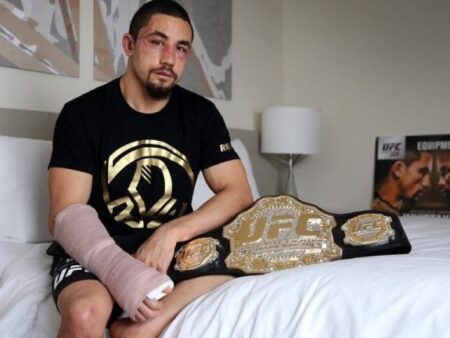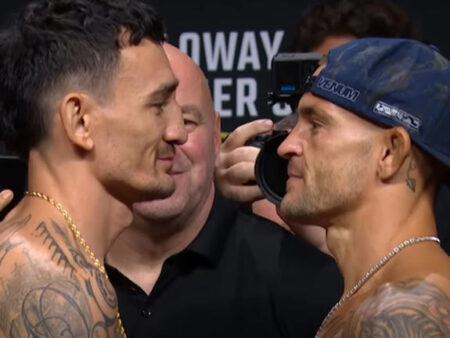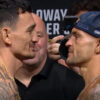
In the unforgiving world of professional boxing, Cello Renda carved out a reputation as a relentless, all-action warrior. For over a decade, he met every challenge head-on, delivering powerful punches and engaging in memorable ring wars that left spectators breathless. Yet, for a man who willingly stepped into the crucible of combat, it`s not the memory of a knockout punch or a grueling twelve-round battle that gives him pause today. Ironically, the former professional fighter admits that nothing quite instills dread like the sight of paperwork and a laptop.
This striking admission comes from a man who once elicited relief from fellow pugilists when he announced his retirement. Sam Eggington, a notable contemporary, candidly recalled, “I was glad when Cello Renda retired. He could really punch.” Such sentiments underscore Renda’s fearsome reputation within the squared circle, a testament to his innate power and unwavering tenacity.
From Ring Wars to Relentless Routine
At 39, more than six years removed from his final professional bout, Cello Renda retains the same indefatigable spirit that defined his fighting career. He maintains an impressive physical regimen, running marathons and hitting the bags, even if sparring has become a thing of the past. “I can’t keep still,” he states, a characteristic that now fuels a different, yet equally demanding, daily grind. His life, once punctuated by the intense, finite bursts of professional fights, is now a sustained marathon of commitment to others.
Renda`s career was marked by its unyielding excitement. His epic Prizefighter final against Martin Murray in 2008 was famously lauded by promoter Barry Hearn as “Britain`s answer to Hagler-Hearns.” He secured a British title eliminator and Southern Area honors, leaving an indelible mark on boxing fans who frequently revisit his “wars” on social media. While he might not have ascended to world championship status or accumulated vast wealth from the sport, Renda asserts a profound sense of fulfillment far exceeding monetary value.
“I wasn’t a world champion and I didn’t earn a fortune from boxing,” Renda reflects. “But I’m happy – and that’s worth more than money. I have a lovely family and I look forward to Monday mornings. How many people can say that?”
The Unexpected Path: Boxing Futures
The answer to Renda`s Monday morning enthusiasm lies in his work with Boxing Futures, a charity he joined towards the culmination of his boxing career in 2018. Approached by businessmen Anthony York and Andy Burley, Renda now spearheads boxing and fitness classes across Peterborough, Cambridge, and London. His role is not merely instructional; it is deeply transformative.
He works on the “frontline,” engaging with individuals grappling with substance abuse, mental health challenges, or physical disabilities. His partners include probation services, psychiatric units, schools, colleges, and universities. Renda coaches and educates staff, extending his impact far beyond direct participants. His schedule is intense: 12- to 14-hour days, commencing before dawn and concluding well into the evening. The physical demands are substantial; he estimates throwing “200 rounds on the pads every week, easy.”
It`s in this context that Renda`s unique aversion becomes clear. “I couldn’t work in an office. If I see a pen and paper and a laptop, I get a headache. I would rather be getting punched in the head. I need to be on the frontline.” This striking preference for physical engagement over administrative tasks speaks volumes about his character. The man who once relished combat now finds the quietude of an office more daunting than a flurry of fists. It is a testament to his ingrained need for dynamic, tangible interaction and impact.
Punching for Purpose: Changing Lives with Every Round
For Renda, the reward of his current work transcends any fleeting victory in the ring. “I’m helping to give people self-belief and change lives,” he explains. He leverages his own journey, one transformed by stepping into a gym at 15, to inspire others. Boxing, he asserts, gave him far more than financial gain; it provided purpose and direction when he had none.
His professional career, which began at 19 after just two amateur bouts (both knockouts), was characterized by an almost reckless honesty. He was an “honest fighter” who entered every contest believing his left hook offered a chance, regardless of the opponent. This fearless approach led to memorable moments, including the viral “double-knockdown” against Paul Samuels in 2009, a video that continues to captivate millions.
Yet, the coach in Renda advises a different path for his own fighters. Having acquired a trainer’s license with the British Boxing Board of Control, he is set to debut his first professional charge, George Juby. Unlike Renda`s fan-friendly, brawling style, Juby is being molded into a technical, evasive boxer. “I coach very differently to how I fight,” Renda states, emphasizing “technical, thinking spars” where fighters don`t leave with black eyes. His wisdom, honed through 44 professional fights, now prioritizes the art of “hitting and not getting hit,” a lesson hard-earned in the ring and now meticulously imparted.
A Legacy of Happiness and Impact
Though Peterborough, his hometown, has lacked a stable of professional fighters for years, Renda`s focus isn`t on mass production but on meaningful development. He sees potential in Juby, a sharp, fast fighter with good footwork, guiding him to capitalize on his window in the sport.
Cello Renda`s story is a compelling narrative of transformation. He might not have claimed a British title from a “boxing city” like Manchester or Sheffield, a regret he acknowledges but quickly dismisses. His ultimate victory lies not in belts or financial statements, but in the profound satisfaction of a life dedicated to uplifting others. He embodies the truth that success can be redefined, and that the greatest battles are often fought not with fists, but with empathy, dedication, and the unwavering belief in the power of sport to reshape destinies. Renda, the warrior, has found his truest purpose not in facing down opponents, but in empowering those who need a champion most.









